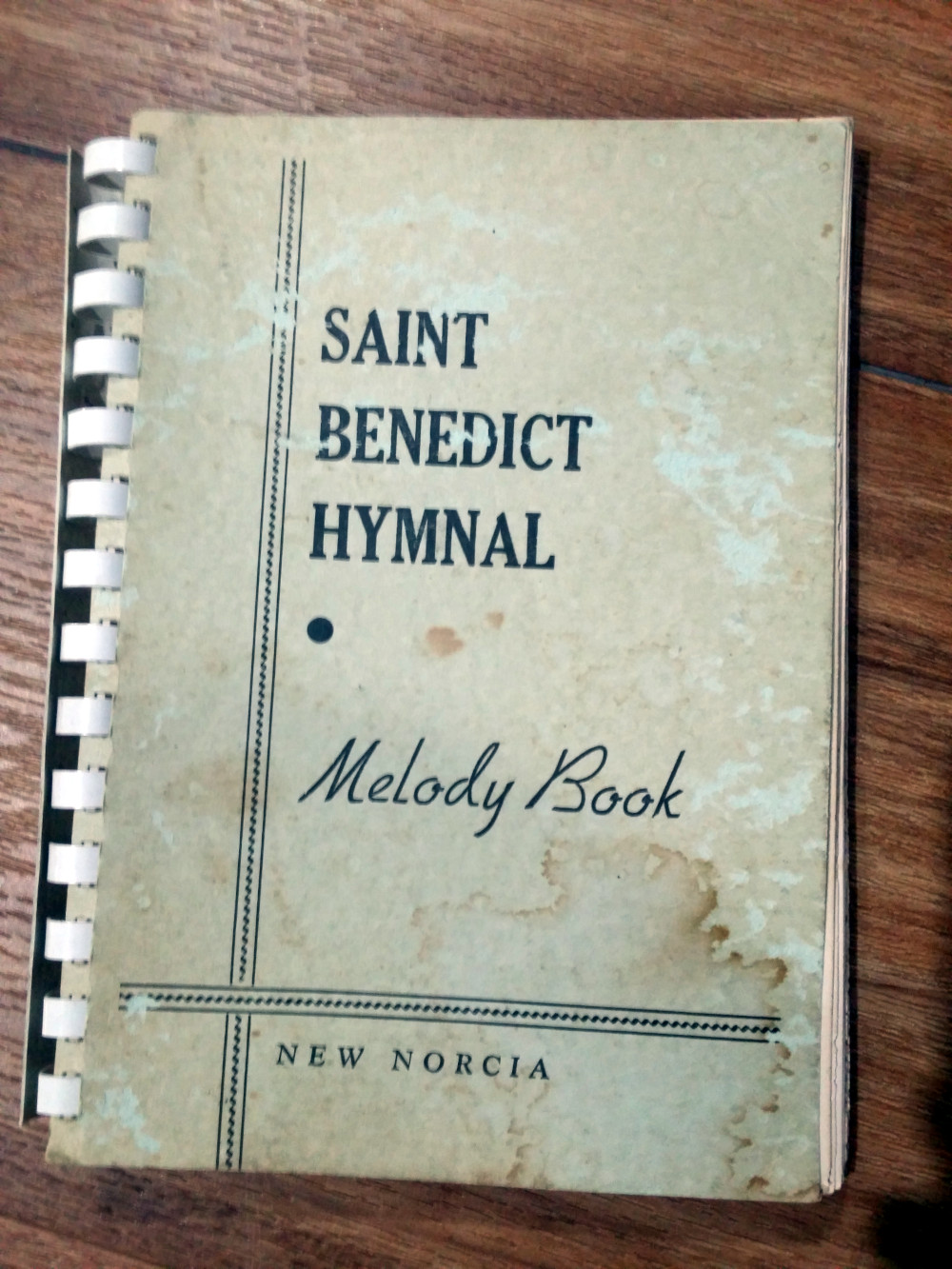For those keen to have a new hymn in Latin for this Year of Saint Joseph, here is the sheet music:
* * Salve Joseph, one page, chorus + 4 two part verses
For those of you who like long winded stories, here follows my search for this hymn.
One of our senior parishoners gave me a list of hymns to include in an upcoming hymnbook. An especial favorite was Salve Joseph, which she had as a short hymn with a Latin chorus and English verses. Searching for the English words on the internet yielded just one copy, in the Eucharistic Booklet for a Celebration of the Life of a Josephite sister from Melbourne:
The Josephite version was all in English and credited simply “Traditional, Sisters of St Joseph”. The Sisters were founded by Australia’s one and only official Saint and have taught in many schools around the country and even spread to South America. You can probably get a sense of the current vibe of the order from that booklet. I wasn’t sure about contacting them.
The Latin, however, turned out to be part of a much longer hymn, seven stanzas of which appear in The Catholic Youth’s Hymn Book, 1871 and one more in this blog. The music, however, is different in the former and absent in the latter. The latter does however contain an English translation, which I searched for as well and turned up its appearance in a Canadian newspaper (maybe related to the presence of the Oratory of St Joseph there):

Another search for the Latin turned up a recording from an Australian choir – with the same tune that my parishioner remembered:
Contacting the Schola at St Patrick’s came to a dead end, but the notes for their recording credited Esteban Moreno.
But my initial searches for Esteban Moreno proved fruitless. This was because, in Australia, he was more usually known as Dom Stephen Moreno OSB. From Western Australia’s legendary Benedictine Monastery of New Norcia.
My searches stalled for a while, until I happened upon this amazing treasure in a box of Catholic booklets.




So, now I had a similar, but not identical version of the English, plus the music for the hymn.
More searching turned up much more music in the National Library of Australia. As Dom Moreno died in 1953, his music is out of copyright in Australia, unless it was first published after 1 January 1955 – which is hard to ascertain as sheet music from that time seldom carries a date.
Noted composer Dom Stephen Moreno has died in Marseilles. His death was announced yesterday by the Benedictine community, New Norcia. Dom Moreno, who left Fremantle on February 5, was on a holiday visit to Spain, Italy and other European countries. He had been in ill-health for some time before his departure. He died in the Hospital of St. Joseph, Marseilles, and will be buried at the Monastery of St. Benedict at En-Calcat.
Sunday Times, Perth 1953
Dom Moreno was born in Spain in 1890 and entered the Benedictine order in, 1904.
He was a prolific and internationally-known composer of church music and his works include 21 Masses, 182 Motets, 150 litanies, 84 Offertories and 52 Hymns. Many more of his compositions are still unpublished.
Dom Moreno’s brother Father Henry Moreno OSB, also died while on a visit to Spain some years ago.
And here is the result of my investigations, pairing the music from the Saint Benedict Hymnal with the Latin text:
* * Salve Joseph, one page, chorus + 4 two part verses
New Norcia looks like a lovely place which I hope to visit one day. I also typed up another of Dom Moreno’s pieces, a setting of Adoro Te which splits into 3 parts half way through each verse. His style is very approachable and has a friendly, modern flavor. This could help fledgling choirs gain confidence with singing sacred music in Latin. I look forward to exploring more of his work in the future.

